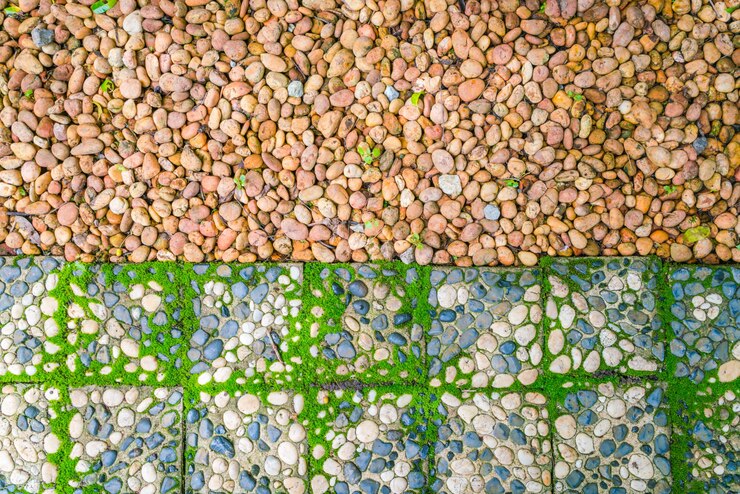When considering the installation of a new driveway, many homeowners are drawn to the modern and sleek aesthetic of resin driveways. This surfacing solution has gained popularity due to its durability, versatility, and visually appealing finish. However, before you make a decision, there are several important factors to consider that will ensure you make an informed choice for your property.
Understanding Resin Driveways
A resin driveway is constructed from a mixture of resin and aggregate materials, which are combined and laid on a prepared base. The end result is a seamless, durable surface that can be customized in a variety of colors and textures. Unlike traditional driveways made of concrete or asphalt, resin driveways offer several advantages, including flexibility in design, resistance to cracking, and low maintenance requirements.
Advantages of Resin Driveways
Aesthetic Appeal: One of the primary reasons homeowners opt for resin driveways is their aesthetic versatility. The ability to choose from various colors and aggregate finishes means you can create a driveway that complements your home’s architecture and landscaping.
Durability: Resin driveways are highly durable and can withstand heavy traffic. They resist cracking and deformation better than many traditional surfaces, making them a long-lasting investment.
Permeability: A significant benefit of resin driveways is their permeability. The porous surface allows rainwater to drain through, reducing the risk of flooding and promoting groundwater recharge. This can be particularly advantageous in areas prone to heavy rainfall.
Low Maintenance: Resin driveways require minimal upkeep compared to other surfaces. Regular sweeping and occasional power washing are usually enough to keep them looking pristine. Additionally, they are resistant to weeds and moss growth, which can be a common issue with traditional driveways.
Quick Installation: While preparation is crucial, the actual installation process of a resin driveway can be relatively quick. Once the base is prepared, the application of resin and aggregate can often be completed within a day or two.
Considerations Before Installation
Despite the many advantages, there are several considerations to keep in mind before installing a resin driveway.
Substrate Preparation: Proper preparation of the substrate is essential for the longevity and durability of a resin driveway. The base should be stable and well-drained. Any existing surface should be thoroughly cleaned, and if necessary, repairs should be made before installation.
Climate Conditions: The installation of resin driveways is best done under optimal weather conditions. Avoid installing during very cold or wet weather, as these conditions can affect the curing process. Ideally, a temperature range of 15°C to 25°C is recommended for installation.
Regulations and Permits: Before proceeding with installation, check with local authorities regarding any regulations or permits required for driveway surfacing. This is especially important if you are making significant changes to your property’s drainage system.
Design Considerations: Take the time to plan your design. Consider not only the color and texture but also the overall layout. It may be beneficial to create a visual mock-up to see how the driveway will look in relation to your home and landscaping.
Professional Installation: While DIY projects can be rewarding, installing a resin driveway is best left to professionals. Experienced installers will have the necessary knowledge and tools to ensure a proper installation, which is crucial for the driveway's long-term performance.
Maintenance Planning: Although resin driveways require less maintenance than other surfaces, some upkeep is still necessary. Plan for occasional cleaning and be aware of potential issues such as discoloration or wear in high-traffic areas.
Environmental Considerations: Some homeowners may have concerns about the environmental impact of resin products. Research the materials used and consider eco-friendly options when available. Additionally, ensure that the installation is done in a way that promotes drainage and minimizes runoff.
Common Misconceptions
There are several misconceptions surrounding resin driveways that it’s important to address.
“Resin Driveways are Slippery”: While resin driveways can be smooth, there are additives that can be incorporated into the mix to enhance grip and reduce slipperiness, especially in wet conditions.
“All Resin Driveways are the Same”: There are various types of resin systems, including bound and bonded options. Bound systems are often more durable and suitable for high-traffic areas, while bonded systems may be appropriate for lighter use.
“They are Prone to Damage”: While all surfaces can be damaged under extreme conditions, resin driveways are designed to be robust and can handle normal wear and tear without significant issues.
Conclusion
A resin driveway can be an excellent choice for homeowners looking for a durable, attractive, and low-maintenance option. However, careful consideration is essential to ensure a successful installation. From understanding the preparation and installation process to considering climate conditions and local regulations, being informed will help you make the best decision for your property. By investing the time to plan and consult with professionals, you can enjoy the many benefits that resin driveways have to offer for years to come.





Comments